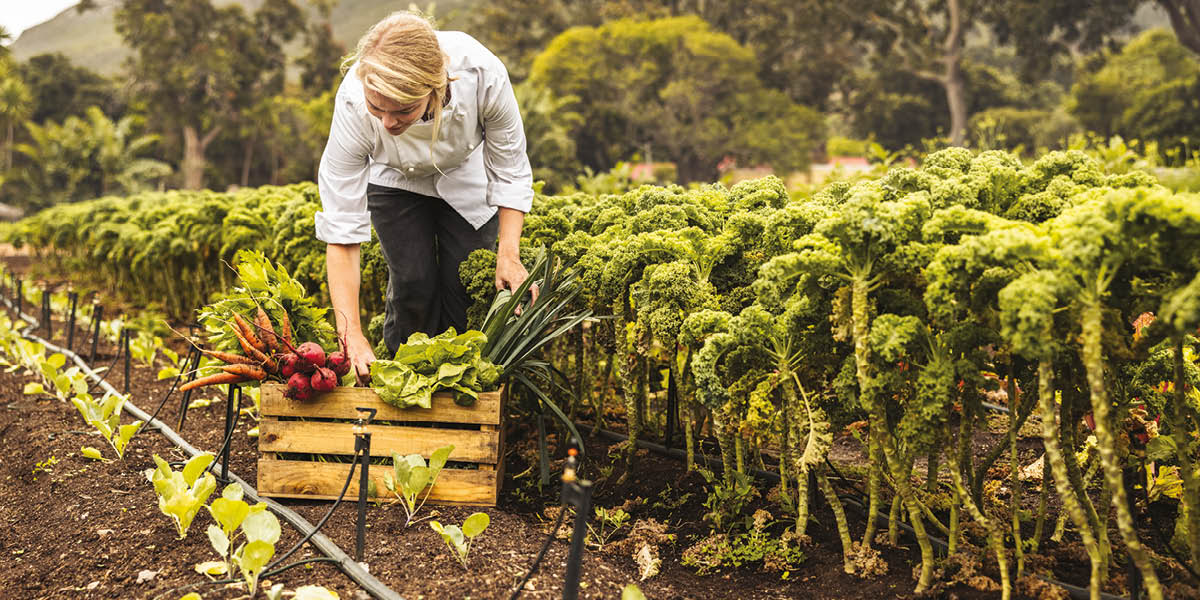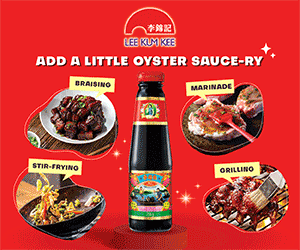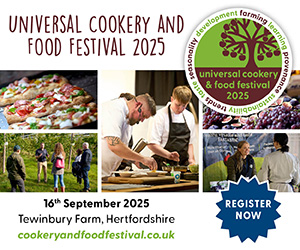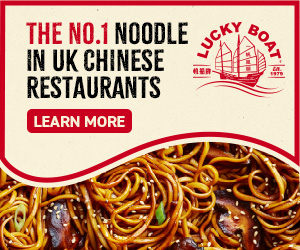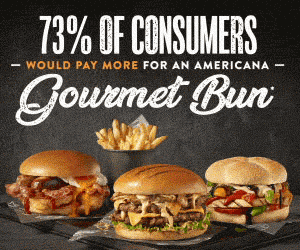Feature: Mission Zero

The environment is at breaking point and humanity teeters dangerously close to the point of no return. Are you joining the fight to safeguard our future, or content to lay low as it burns?
Words: Genna Ash-Brown
“You are never too small to make a difference” – Greta Thunberg
In a divisive world fuelled by amplified opinions, post-truth claims and tunnel-vision views, one can at least take comfort in the definitive nature of data. Numbers are objective. They are substantiated. They are black and white. But when it comes to those relating to the climate crisis, the figures are far from reassuring.
A heatwave last July saw temperatures soar to the highest level ever recorded in the history of Britain. As if that wasn’t worrying enough, the Met Office has predicted that this year will be even hotter than the last, with forecasts suggesting the global temperature will be at least 1°C above average for the 10th consecutive year.
In 2015, world leaders set a goal for nations to keep global average temperatures “well below 2°C”, with the target shifting to 1.5°C in the years since. What happens if we fail to reach that goal? A plague of food and water shortages, international conflict, natural disasters and an endless stream of crises on top that will frankly be far worse than you can imagine. Think this sounds dramatic? Take a closer look at the stats.
In a COP27 climate change explainer published by Reuters in November, Johan Rockström, director of the Potsdam Institute for Climate Impact Research, emphasised that, at the current rate of fossil fuel consumption, we have only eight years left until the 1°C limit is passed. A study published in the Environmental Science Journal in 2021 revealed that air pollution, caused by burning fossil fuels such as oil and coal, was responsible for one in five deaths worldwide in 2018, amounting to an almost unbelievable 8.7 million people worldwide. The UN states that some 40% of the world’s land surface has been degraded in the incessant search for fossil fuels. The UN also points out that only 0.5% of the Earth’s water is usable and available fresh water, with toxic runoff, oil spills and fracking destroying our waterways and all life therein at a terrifying pace. And you know, that’s merely the tip of the rapidly melting iceberg.
The numbers are stark and sobering – but there is hope. The UN predicts that limiting global warming to 1.5°C would approximately halve the proportion of the global population expected to suffer water scarcity. In terms of air pollution, Rockström notes that nature has absorbed more than half (56%) of all fossil fuel emissions emitted since 1750, demonstrating the magical impact large-scale reforestation projects could have. Regenerative agriculture can also mitigate harmful emissions, on top of boosting resource efficiency and increasing biodiversity. The Rodale Institute estimates that we could sequester more than 100% of current annual carbon dioxide emissions if we switch to regenerative practices. The magic number is 1.5. In the expert words of Rockström: “1.5°C is a temperature threshold we cannot drop.”
Get granular
There’s no way to navigate the journey ahead without understanding where your business is currently. As Mark Chapman, founder of the Zero Carbon Forum (ZCF), explains: “‘Sustainability’ is a broad church of practices and products, so many operators don’t know where to start, what practices to take and what changes to make to their products to improve sustainability. The starting point is to measure your carbon emissions.”
The ZCF is specifically dedicated to the hospitality industry, and all members are supported in calculating their carbon footprints to figure out their impact areas. Armed with this data, operators can build a climate action plan designed to tackle key emission areas such as food, drink, transport and energy, ranked in order of priority. But then, implementing those changes requires the whole team to jump on board. “To help prioritise time and resources to embed sustainable practices and products, it’s essential that sustainability and carbon reduction be thought of as an integral part of the restaurant offering. To help engage your team, have regular reviews to measure your progress and the impact that has on reducing your emissions.”
Here, the details really do matter, as steak restaurant chain Hawksmoor knows all too well. But for Huw Gott, co-founder of the company, one of the most rewarding shifts as the group tackles ‘mission zero’ has been working to get head chefs on board, coming up with ideas and training their own teams. “The solution to that has been meeting them halfway – coming into kitchens for briefings, respecting their priorities and generally listening to the way they suggest delivery can happen. Ultimately, it’s the people in the restaurants making a lot of the behaviour changes needed, so they’re only good plans if the people delivering them can get behind them.”
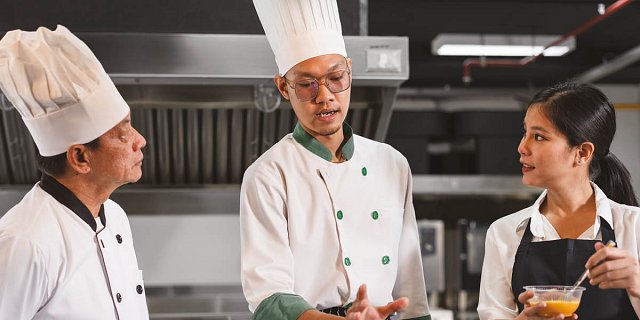
Brief your kitchen team on the sustainable goals of your business
That said, Hawksmoor would never be able to hatch such plans without access to the stats that inform them. “Getting the data and setting clear targets is critical,” urges Gott. “Data collection can be long and tedious but, without it, we’re guessing. If resources are tight, offsetting is a secondary priority to investing time and energy (and operating changes) into the actual reduction of emissions. Reduction should always be the priority.”
On this point, the ZCF overwhelmingly agrees, with Chapman advising: “We would recommend that restaurateurs focus on reducing their emissions to net-zero and not buying offsets to claim carbon neutrality, which is increasingly seen as greenwashing by customers.” Recent research by McKinsey and NielsenIQ showed that 40% of green claims in Europe might actually be misleading. But if you’re ever tempted to jump on that wagon, note that, in a study tracking 7,365 firms across 47 countries over 15 years, researchers found that consumers penalise firms for greenwashing, as reflected in lower sales.
“One of the questions we get asked a lot is how we can be a carbon-neutral steak restaurant group when beef is the focus on our menu,” says Gott. “It’s important that people ask the question, but it’s not the right one.
“While we don’t think abstinence from beef is the answer to the world’s problems, we’re also not incorrigible meat-heads. We have always tried to do vegetarian dishes and launched our first vegan dish in 2022. We regularly meet with alternative protein producers – perhaps ironically, none has yet provided the ethical and sustainability credentials we require to get on our menu.
“Any company can be carbon-neutral. The question we really want to answer is how we claim to be a genuinely sustainable restaurant group given the well-documented facts about emissions from beef.
“We had to be the first in line to become carbon-neutral and set out carbon reduction plans,” he emphasises. “Offsetting is not the solution, but it is a step along the way, and means we have a bottom-line responsibility that we’re working on reducing.”
Sort out your supply chain
According to the ZCF, around 35% of the UK’s carbon emissions come from the production and consumption of food and drink. A typical restaurant will emit over 376 tonnes of carbon per year, which is the equivalent of heating 117 UK households. It’s not just about you and your business, but the companies you choose to work with, with Our World in Data stating that supply chains account for 18% of food-related emissions. Making ethical and responsible decisions about your produce, and actively seeking partners with values that match up to yours, are key to building (and maintaining) a sustainable supply chain.
“When you have a business like ours, with beef front and centre, it comes with not only a huge responsibility but also great opportunity,” says Gott. “It’s important for us, as a business and an industry, to recognise and tackle environmental issues that aren’t necessarily captured in carbon
reduction statistics.”
As a brand, Hawksmoor looks to celebrate and encourage the nature-enhancing benefits of regenerative agriculture – beef farming included. “We’re working extremely closely with all our beef farms,” adds Gott. “They, in turn, are setting out their goals to get to net-zero by 2040 through land, manure and feed management.
“We work hard to support those following practices that promote biodiversity and help tackle wildlife loss. Farming with nature, rather than against it. Much wildlife needs grazing to survive and we seek out those at the top of their game, both in terms of quality and impact on the natural environment, which, in turn, can encourage others to follow suit.”

Make ethical and responsible decisions about the products used in your venue
Gott explains that hospitality faces a unique challenge in the size of its supply chains. Hawksmoor’s Scope 3 emissions (meaning those caused directly by the products or services purchased by the business) far outweigh those from Scopes 1 (emissions associated with fuel combustion in boilers, furnaces, vehicles, etc) and 2 (the company’s operational emissions). “As such, we have a great deal of work to do in collaboration with suppliers to streamline procurement over the next decade so that we’re able to support each other’s business models as they also turn green,” he says.
Smart purchases
Cost is one of the biggest hurdles operators face when it comes to upholding sustainable practices, but also buying sustainably. When it comes to kitchen equipment, it’s all too easy to get fooled into purchasing what might seem to be the cheaper model initially, but once you factor in lifetime costs, quite the opposite becomes apparent. “That’s when you get an understanding of the false economy that less expensive models often are,” states Roz Scourfield, national sales manager at Hoshizaki. “Not only is this from the day-to-day running costs of the equipment, as they tend to come with higher energy consumption, but also because you’re likely to be replacing the equipment two or three times more often than more expensive alternatives.”
To ensure you’re not getting duped into a false economy buy, do your research, take time to truly understand the issues, calculate costs and identify solutions that will help tackle your kitchen’s carbon reduction target areas. “One of the biggest misconceptions is that sustainable kitchens are prohibitively expensive,” says Wayne Bennett, vice president of sales and marketing at MKN. “In fact, taking time to calculate long-term savings will often show that the savings can soon pay back any additional outlay. Innovative features such as water-saving automatic cleaning and closed triple-glazed doors can help minimise ongoing costs by optimising energy/resource use.”
It’s essential that you seek sound advice before you commit to the buy, including a thorough benchmarking and assessment process. “Getting unbiased information is a significant issue for restaurateurs when buying equipment because the market is bombarded with competing sustainability-message marketing,” notes Paul Anderson, managing director of Meiko.
With even the largest restaurant chains feeling the financial pinch, it has never been more crucial that operators are certain any investment made in the kitchen is the right one. “Refitting an entire space with new, energy-efficient equipment may not be an option in the current climate, but modern advances in technology mean that many appliances offer versatility and flexibility, doing the work of multiple appliances in one,” explains Unox MD Scott Duncan. See – building a more sustainable operation doesn’t have to cost the earth, it’s mostly about making smarter purchasing decisions.
A problem shared is a problem halved
Reducing emissions is the single most effective thing you can do – as both an individual and a business – to bring a suffering planet back from the brink. The quest towards carbon neutrality demands action that’s measured and meaningful, but just know that you don’t have to face the challenge alone. We dug ourselves into this mess, so you best believe we can claw our way out. The only way to win is to work together. And, honestly, the long-term consequences of sitting idly by are so catastrophic they don’t bear thinking about. It’s not too late to take action – but you must act now.


